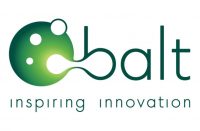MINNEAPOLIS, Jan. 22, 2019 (GLOBE NEWSWIRE) — DiaMedica Therapeutics Inc. (NASDAQ:DMAC) announces the publication of a paper titled “Human Tissue Kallikrein In The Treatment Of Acute Ischemic Stroke” in the peer reviewed journal, Therapeutic Advances in Neurological Disorders (“TAND”). The paper summarizes the mechanistic rationale for using KLK1 to treat patients with acute ischemic stroke (“AIS”) and summarizes human preclinical and clinical data supporting the hypothesis that KLK1 treatments may improve outcomes after AIS.
AIS remains a major cause of death and disability throughout the world. The treatment strategies currently available in Western countries for large vessel occlusion involve critical restoration of blood flow through rapid removal of the offending blood clot using mechanical or pharmacological means (e.g. tissue plasma activator or tPA). The paper reviews the prospects for a novel pharmacological approach to enhance the availability of the natural protein, tissue kallikrein (“KLK1”), an important regulator of local blood flow.
KLK1, is a serine protease that plays a critical role in the regulation of microcirculation, blood pressure and blood flow. Multiple lines of evidence indicate that KLK1 is important for a healthy cardiovascular system and that deficits in KLK1 are associated with cardiovascular and end-organ pathology. Importantly, KLK1 replenishment therapy is widely used in Asia where multiple forms are used to treat diseases ranging from AIS to complications of diabetes (retinopathy and kidney disease). These diseases involve poor microcirculation or tissue ischemia, which leads to a hypothesis that directly boosting KLK1 levels will improve blood flow and protect tissue under ischemic conditions.
The TAND paper reviews the scientific literature covering the biochemical role of KLK1 and presents the mechanistic rationale for using KLK1 as an additional pharmacological treatment for AIS. In addition to the biochemical mechanism of KLK1, the review highlights supporting results from human genetics and preclinical animal models of brain ischemia. It also reviews published clinical results for treatment of AIS by a form of KLK1 that is isolated from human urine. This form has been approved for post-infarct treatment of AIS in the People’s Republic of China and data has been published on clinical trials involving over 4,000 patients. The paper offers a series of testable therapeutic hypotheses for demonstrating the long-term beneficial effect of KLK1 treatment in AIS patients and the reasons for this action.
“DiaMedica is committed to providing helpful information to healthcare professionals and their patients regarding novel, experimental treatment strategies that may improve microvascular circulation and stroke. This paper, which reviews the published information about KLK1 and AIS, further supports the rationale for our ongoing Phase II REMEDY Clinical Trial.” said co-author Todd Verdoorn, PhD., Chief Scientific Officer, DiaMedica Therapeutics.
About DM199
DM199 is a recombinant form of human tissue kallikrein-1 (“KLK1”). KLK1 is an endogenous serine protease (protein) produced in the kidneys, pancreas and salivary glands, which plays a critical role in the regulation of local blood flow and vasodilation (the widening of blood vessels which decreases blood pressure) in the body, as well as an important role in managing inflammation and oxidative stress (an imbalance between potentially damaging reactive oxygen species, or free radicals, and antioxidants in your body). KLK1 deficiency may play a role in multiple vascular and fibrotic diseases such as chronic kidney disease, retinopathy, stroke, vascular dementia and resistant hypertension where current treatment options are limited or ineffective. DiaMedica is the first company to have developed a pharmacologically active recombinant form of the KLK1 protein. The KLK1 proteins, produced from porcine (pig) pancreas and human urine, have been used to treat patients in Japan, China and Korea.
About REMEDY Phase II AIS Study
In February 2018, we initiated treatment on the first patient in our Phase II REMEDY trial assessing the safety, tolerability and markers of therapeutic efficacy of DM199 in patients suffering from AIS. Our REMEDY trial is expected to enroll up to 100 patients to evaluate DM199 in patients with AIS. The study drug (DM199 or placebo) will be administered as an intravenous (“IV”) infusion within 24 hours of stroke symptom onset, followed by SC injections on day 1 and every 3 days for 21 days. The study is designed to measure safety and tolerability along with multiple tests designed to investigate DM199’s therapeutic potential including plasma-based biomarkers and standard functional stroke measures assessed at 90 days post-stroke. Standard functional stroke measurements include the Modified Rankin Scale, National Institutes of Health Stroke Scale, the Barthel Index and C-reactive protein, a measure of inflammation.
About DiaMedica Therapeutics Inc.
DiaMedica Therapeutics Inc. is a clinical stage biopharmaceutical company focused on developing novel treatments for neurological and kidney diseases. DiaMedica’s common shares are listed on The Nasdaq Capital Market under the trading symbol “DMAC.”
For more information, please visit www.diamedica.com, or follow us on Twitter (https://twitter.com/diamedica). To be added to the Company’s email list and receive news directly, please visit https://ir.diamedica.com/email-alerts.
Cautionary Note Regarding Forward-Looking Statements
This press release contains forward-looking statements within the meaning of the U.S. Private Securities Litigation Reform Act of 1995 and forward-looking information that are based on the beliefs of management and reflect management’s current expectations. When used in this press release, the words “estimate”, “believe”, “anticipate”, “intend”, “expect”, “plan”, “will,” “may” or “should”, the negative of these words or such variations thereon or comparable terminology and the use of future dates are intended to identify forward-looking statements and information. The forward-looking statements and information in this press release include statements regarding the expectation that KLK1 may improve outcomes after AIS. Such statements and information reflect management’s current view and DiaMedica undertakes no obligation to update or revise any of these statements or information. By their nature, forward-looking statements involve known and unknown risks, uncertainties and other factors which may cause our actual results, performance or achievements, or other future events, to be materially different from any future results, performance or achievements expressed or implied by such forward-looking statements. Applicable risks and uncertainties include, among others, DiaMedica’s plans to develop, obtain regulatory approval for and commercialize its DM199 product candidate for the treatment of CKD and its expectations regarding the benefits of DM199; DiaMedica’s ability to conduct successful clinical testing of DM199 for CKD; the perceived benefits of DM199 over existing treatment options for CKD; ability to obtain required regulatory approvals of DM199 for CKD; the potential size of the markets for DM199 and its ability to serve those markets; the success, cost and timing of planned clinical trials, as well as reliance on collaboration with third parties to conduct clinical trials; its ability to obtain funding for its operations, including funding necessary to complete planned clinical trials and obtain regulatory approvals for DM199 for CKD, and the risks identified under the heading “Risk Factors” in DiaMedica’s final prospectus filed with the U.S. Securities and Exchange Commission (“SEC”) pursuant to Rule 424(b) promulgated under the U.S. Securities Act of 1933, as amended, dated December 10, 2018, in connection with DiaMedica’s Registration Statement on Form S-1, as amended, and subsequent SEC filings by DiaMedica. The forward-looking information contained in this press release represents the expectations of DiaMedica as of the date of this press release and, accordingly, is subject to change after such date. Readers should not place undue importance on forward-looking information and should not rely upon this information as of any other date. While DiaMedica may elect to, it does not undertake to update this information at any particular time except as required in accordance with applicable laws.
IR contact:
Paul Papi
Vice President of Business Development
DiaMedica Therapeutics Inc.
Two Carlson Parkway, Suite 260
Minneapolis, MN
Phone: (617) 899-5941
info@diamedica.com






